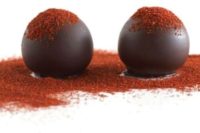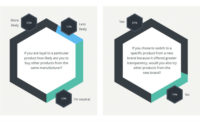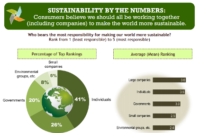It is 3 p.m. and a hungry consumer walks into your candy shop, looks in her wallet and decides to pay with cash instead of a credit card. This seemingly innocuous decision could very well influence her to buy something more indulgent, according to new research published in the American Marketing Association's Journal of Public Policy and Marketing.
Authors Rajesh Bagchi and Lauren Block argue that because it feels more expensive when paying with cash versus a credit card, consumers are likely to indulge more - at least when it comes to impulse buys and immediate consumption products.
For example, shoppers are more likely to choose the cookie over the apple when paying with cash, but would choose the apple when paying with a credit card.
Consumption of indulgent foods alleviates the pain of payment and leads to greater positive affect, the authors write.
The authors say the theory stems from the pain of payment and applies to all payment types, and paying with cash is more visceral than other payment forms. The theory applies to consumers at all income levels, but may be most readily apparent among the poor.
"Payment can be painful when it is more difficult to earn money,” Bagchi says. “People below the poverty line often find it difficult to earn money. So when they spend they want every penny to count. This can potentially explain why obesity rates are higher in these segments.”
But it is not just the poor who find products expensive, Block says.
"During these current economic times, almost everybody is feeling the pain of payment,” Block explains. “Therefore, the sale of indulgences should be on the rise as consumers will purchase indulgent products to compensate for the pain of payment."
These findings are in direct opposition to some recent study findings that found that when making grocery purchases consumers make judicious purchases with cash but buy more indulgent products with a credit card.
Bagchi says this may be because in grocery stores, the purchase is not consumed immediately. In a grocery store, consumers have to justify the purchase and because cash is more painful to pay with, consumers are more careful when making cash purchases.
"But in our contexts," Block says, "justification is not necessary as consumption is immediate. It is this consumption that blunts the pain of payment."
Their article "Chocolate Cake Please! Why Do Consumers Indulge More When It Feels More Expensive?" appears in the Fall issue of the AMA's Journal of Public Policy and Marketing.
For more information, visit marketingpower.com.





